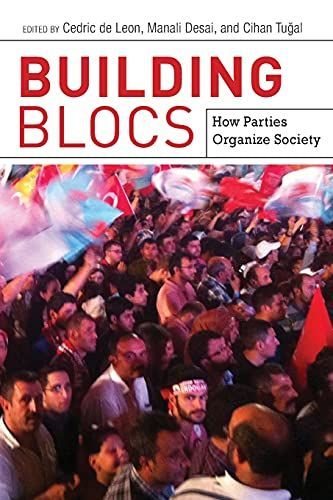
Building Blocs How Parties Organize Society
Do political parties merely represent divisions in society? Until now, scholars and other observers have generally agreed that they do. But Building Blocs argues the reverse: that some political parties in fact shape divisions as they struggle to remake the social order. Drawing on the contributors' expertise in Indonesia, India, the United States, Canada, Egypt, and Turkey, this volume demonstrates further that the success and failure of parties to politicize social differences has dramatic consequences for democratic change, economic development, and other large-scale transformations. This politicization of divisions, or "political articulation," is neither the product of a single charismatic leader nor the machinations of state power, but is instead a constant call and response between parties and would-be constituents. When articulation becomes inconsistent, as it has in Indonesia, partisan calls grow faint and the resulting vacuum creates the possibility for other forms of political expression. However, when political parties exercise their power of interpellation efficiently, they are able to silence certain interests such as those of secular constituents in Turkey. Building Blocs exposes political parties as the most influential agencies that structure social cleavages and invites further critical investigation of the related consequences.